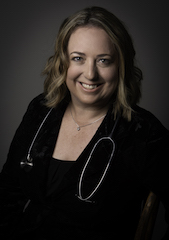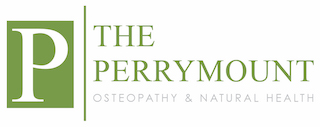Call to book or for more information 01444 410944
Shania Lee

Functional Medicine
Functional medicine practitioner and Complementary Alternative Medical Doctor, AFMCP Graduate with an NCFE accredited Diploma in Personal Nutrition. Dr Lee is also registered with the Alliance of Registered Homeopaths in London and is insured through Balens.
Radiant Balance is the practice name of Dr. Shania Lee, a qualified and registered Doctor of Homoeopathy, who graduated for the University of Johannesburg in 2000. Her passion for the past 10 years has been Functional medicine and she uses specialised functional testing focusing on DNA analysis (nutrigenomics and epigenetics), and Functional Medicine tests in her practice to uncover the root cause of Dis-Ease.
She uses Complementary Alternative Medicine, lifestyle modification and prescription diets and supplements to address your root cause of illness.
Her work in an integrative medical practice that specialised in hormones and detoxification has geared her to specialise in hormonal imbalances and auto immune diseases.
Dr Lee is a lecturer at the College of Naturopathic Medicine in London and Brighton and is a guest lecturer at BCNH in London. She is also involved in the development of the app GenSMART and is currently developing a couple of lecture series on nutrigenomics and the female hormonal cycle.
FUNCTIONAL MEDICINE seeks to identify and address the root causes of disease, and views the body as one integrated system, not a collection of independent organs divided up by medical specialties. It treats the whole system, not just the symptoms.
Functional medicine integrates traditional Western medical practices (working WITH not against your GP) with what is sometimes considered “alternative” or “integrative” medicine, creating a focus on prevention through nutrition, diet, and exercise. Functional medicine makes use of the latest laboratory testing and other diagnostic techniques and prescribed combinations of botanical medicines, supplements, therapeutic diets, detoxification programs, or stress-management techniques.
Functional medicine addresses the underlying causes of disease, using a systems-oriented approach and engaging both patient and practitioner in a therapeutic partnership. It is an evolution in the practice of medicine that better addresses the healthcare needs of the 21st century. By shifting the traditional disease-centered focus of medical practice to a more patient-centered approach, functional medicine addresses the whole person, not just an isolated set of symptoms. Functional medicine practitioners spend time with their patients, listening to their histories and looking at the interactions among genetic, environmental, and lifestyle factors that can influence long-term health and complex, chronic disease. In this way, functional medicine supports the unique expression of health and vitality for each individual.
How is Functional Medicine Different?
Functional medicine involves understanding the origins, prevention, and treatment of complex, chronic disease. Hallmarks of a functional medicine approach include:
Patient-centered care. The focus of functional medicine is on patient-centered care, promoting health as a positive vitality, beyond just the absence of disease. By listening to the patient and learning his or her story, the practitioner brings the patient into the discovery process and tailors treatments that address the individual’s unique needs.
An integrative, science-based healthcare approach. Functional medicine practitioners look “upstream” to consider the complex web of interactions in the patient’s history, physiology, and lifestyle that can lead to illness. The unique genetic makeup of each patient is considered, along with both internal (mind, body, and spirit) and external (physical and social environment) factors that affect total functioning.
What is Functional Medicine?
The term “Functional Medicine” can seem rather ambiguous. Although this field is becoming more mainstream due to medical doctors like Dr. Mark Hyman, Dr Terry Wahls and more lauding it as the future of health care, Functional Medicine is still generally unknown to the public. The term and field of Functional Medicine refers to something completely different than what we have now come to know as conventional medicine or the standard model of care. To fully understand what functional medicine is, it is important to contrast it with conventional medical care.
Traditionally a medical doctor uses drugs, hormones or palliative measures as therapeutic tools to deal with dysfunction or disease. For various conditions including low thyroid, diabetes, high blood pressure, elevated cholesterol and so on, the standard model of care is generally all the same. Your general practitioner could decide to treat you, or could elect to refer you to a specialist. A GP and specialist have access to the same basic tool: medication. The training in the standard model of care is to diagnose a disease and match that disease with a corresponding drug. The standard model of care works well for acute diseases, trauma, infection, and emergencies. Sadly, it fails miserably in the care of the chronic diseases that affects the majority of people these days.
According to the NHS The highest prevalence of chronic disease are rates are for Hypertension (13.8 per cent), Obesity (9.5 per cent) and Depression (8.3 per cent) with the largest year on year differences in register numbers being Depression (increase of 470,168) and Obesity (increase of 132,222).
Chronic conditions - such as allergic, digestive, hormonal, metabolic and neurological problems – which an alarming number of people suffer from on a daily basis, are finding solutions in the field of Functional Medicine.
So what exactly is Functional Medicine and how can it assist you if you are dealing with a chronic disease?
Here are 5 basic principles that define Functional Medicine:
1) Functional Medicine views us all as being different; genetically and biochemically unique. This personalised health care treats the individual, not the disease. It supports the normal healing mechanisms of the body, naturally, rather than attacking disease directly.
2) Functional Medicine is deeply science based. The latest research shows us that what happens within us is connected in a complicated network or web of relationships. Understanding those relationships allows us to see deep into the functioning of the body.
3) Your body is intelligent and has the capacity for self-regulation, which expresses itself through a dynamic balance of all your body systems.
4) Your body has the ability to heal and prevent nearly all the diseases of aging.
5) Health is not just the absence of disease, but a state of immense vitality.
Here lies the clear distinction and definition of Functional Medicine. Instead of asking, “What drug matches up with this disease?” Functional Medicine asks the vital questions that very few conventional doctors ask: “Why do you have this problem in the first place?” and “Why has function been lost?” and “What can we do to restore function?” In other words, Functional Medicine looks to find the root cause or mechanism involved with any loss of function, which ultimately reveals why a set of symptoms is there in the first place, or why the patient has a particular disease label.
The Functional Medicine tree is a beautiful depiction that helps to describe Functional Medicine.
In short, traditional medicine looks at the "leaves of the tree" and provides a diagnosis, which is often followed by a prescription to treat the symptom(s). You can see how each leaf is separate from each other, hence the various specialities seen in medicine today.
On the other hand, Functional Medicine starts at the "root of the tree" which includes the various lifestyle factors such as diet, exercise, sleep and stress. It then works up the tree to uncover the underlying imbalances in the core systems. Functional Medicine understands that the human body is interconnected and is not individual "leaves".
Functional Medicine gets to the root cause of the imbalances addressing them with the foundation of health.
"Traditional Medicine wants to know what's wrong with you. Functional Medicine wants to know why."
Dr Lee is at The Perrymount Clinic on:
Wednesdays 8.30 am - 1 pm
To book an appointment please call 01444 410944 or click here to book online
Sign up to our newsletter for 6 free health ebooks and £100 of treatment vouchers

The Perrymount Clinic
Unit 5
Hurstwood Grange
Hurstwood Lane
Haywards Heath
West Sussex
RH17 7QX
01444 410944
info@theperrymount.com




